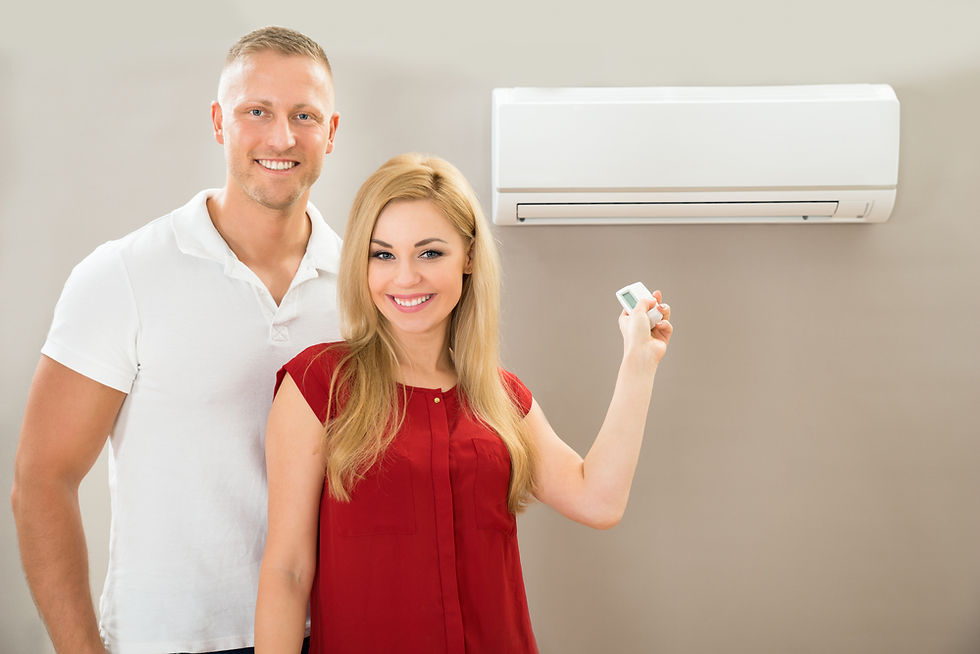Heating Repairs: A Comprehensive Guide to Fixing Your Home Heating System
- Kiera Peterson
- Dec 10, 2025
- 4 min read
As the cold season approaches, ensuring that your home heating system is in perfect working condition becomes a top priority. A malfunctioning heating system can not only make your home uncomfortable but also lead to increased energy bills and potential safety hazards.
This comprehensive guide to heating repairs will help you identify common heating issues, understand the importance of regular maintenance, and decide whether to tackle repairs yourself or hire a professional. We will also discuss how to choose a brivis ducted heating repair service and the costs involved in fixing your home heating system.
Common Heating Issues and Their Causes

There are several common issues that can affect your home heating system, leading to the need for repairs. Some of these issues include:
No Heat or Insufficient Heat: This could be caused by a malfunctioning thermostat, a clogged air filter, or an issue with the furnace or boiler itself.
Strange Noises: If your heating system is making unusual noises, it could indicate a problem with the blower motor, fan belt, or other internal components.
Frequent Cycling: If your heating system is constantly turning on and off, it may be due to a dirty air filter, a malfunctioning thermostat, or an issue with the furnace's limit switch.
Leaking Water or Coolant: This issue is more common in boilers and could be caused by a leak in the system or a malfunctioning pressure relief valve.
Inconsistent Heating: If some rooms in your home are warmer than others, it could be due to poor insulation, blocked air vents, or issues with the ductwork.
Heating System Maintenance Tips
Regular maintenance is essential to keep your heating system running efficiently and to prevent the need for costly repairs. Here are some tips to help you maintain your home heating system:
Change or Clean Air Filters Regularly: Dirty air filters can restrict airflow and cause your heating system to work harder than necessary, leading to increased energy bills and potential damage to the system.
Inspect and Clean Ductwork: Ensure that your ductwork is free of debris and dust, which can cause blockages and reduce the efficiency of your heating system.
Check and Adjust the Thermostat: Make sure your thermostat is functioning correctly and set to the appropriate temperature for your home.
Schedule Annual Inspections: Have a professional HVAC technician inspect your heating system each year to identify and fix any potential issues before they become major problems.
Keep the Area Around your Heating System Clean: Ensure that there is adequate airflow around your furnace or boiler and that the area is free of dust and debris.
DIY Heating Repairs vs. Hiring a Professional
While some minor heating repairs can be tackled by homeowners with basic DIY skills, many issues require the expertise of a professional technician. Attempting to fix a complex heating problem without the proper knowledge and tools can lead to further damage and even pose safety risks. However, if you are confident in your abilities and the repair is relatively simple, such as replacing a thermostat or cleaning an air filter, DIY repairs can save you money.
When deciding whether to tackle a brivis ducted heating repair yourself or hire a professional, consider the complexity of the issue, your level of expertise, and the potential risks involved. If you are unsure, it is best to err on the side of caution and call a professional heating repair service.
How to Choose a Heating Repair Service
When hiring a professional to repair your home heating system, it is important to choose a reputable and experienced company. Here are some tips to help you find the right brivis ducted heating repair service:
Ask for recommendations: Talk to friends, family, and neighbors who have had heating repairs done and ask for their recommendations.
Check online reviews: Read reviews from other customers to get an idea of the company's reputation and the quality of their work.
Verify credentials: Ensure that the company is licensed, insured, and has the necessary certifications to perform heating repairs.
Get multiple quotes: Contact several brivis ducted heating repair services to compare prices and get an idea of the average cost for your specific repair.
Ask about warranties: A reputable company should offer a warranty on their work, giving you peace of mind that the repair will be done correctly.
The Costs of Heating Repairs

The cost of heating repairs can vary greatly depending on the issue, the type of heating system, and the company you choose to perform the repair. On average, homeowners can expect to pay between $100 and $500 for minor repairs, while more complex issues can cost upwards of $1,000. It is important to get multiple quotes from different companies to ensure you are getting a fair price for the repair.
Keep in mind that investing in regular maintenance can help prevent the need for costly repairs and extend the life of your heating system. In some cases, it may be more cost-effective to replace an older, inefficient heating system with a new, energy-efficient model rather than continue to pay for ongoing repairs.
Conclusion
Heating repairs are an important aspect of maintaining a comfortable and safe home environment. By understanding the common issues that can affect your heating system, performing regular maintenance, and knowing when to call in a professional, you can help ensure that your home stays warm and cozy throughout the cold months.
Additionally, taking the time to research and choose a reputable brivis ducted heating repair service can save you time, money, and stress in the long run. Don't let a malfunctioning heating system leave you out in the cold – stay informed and proactive to keep your home warm and comfortable all winter long.



Comments